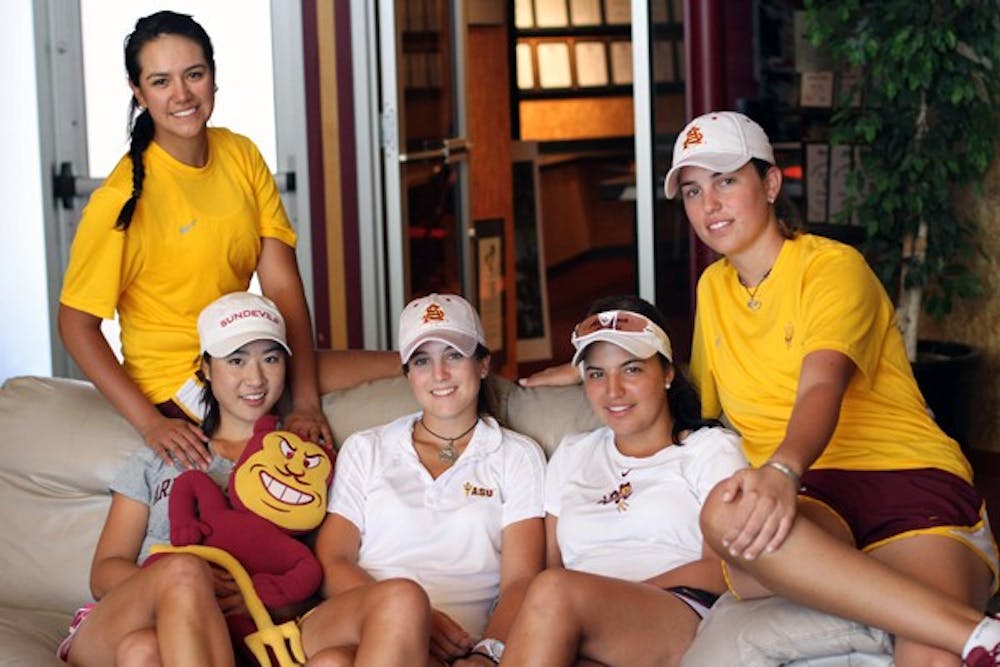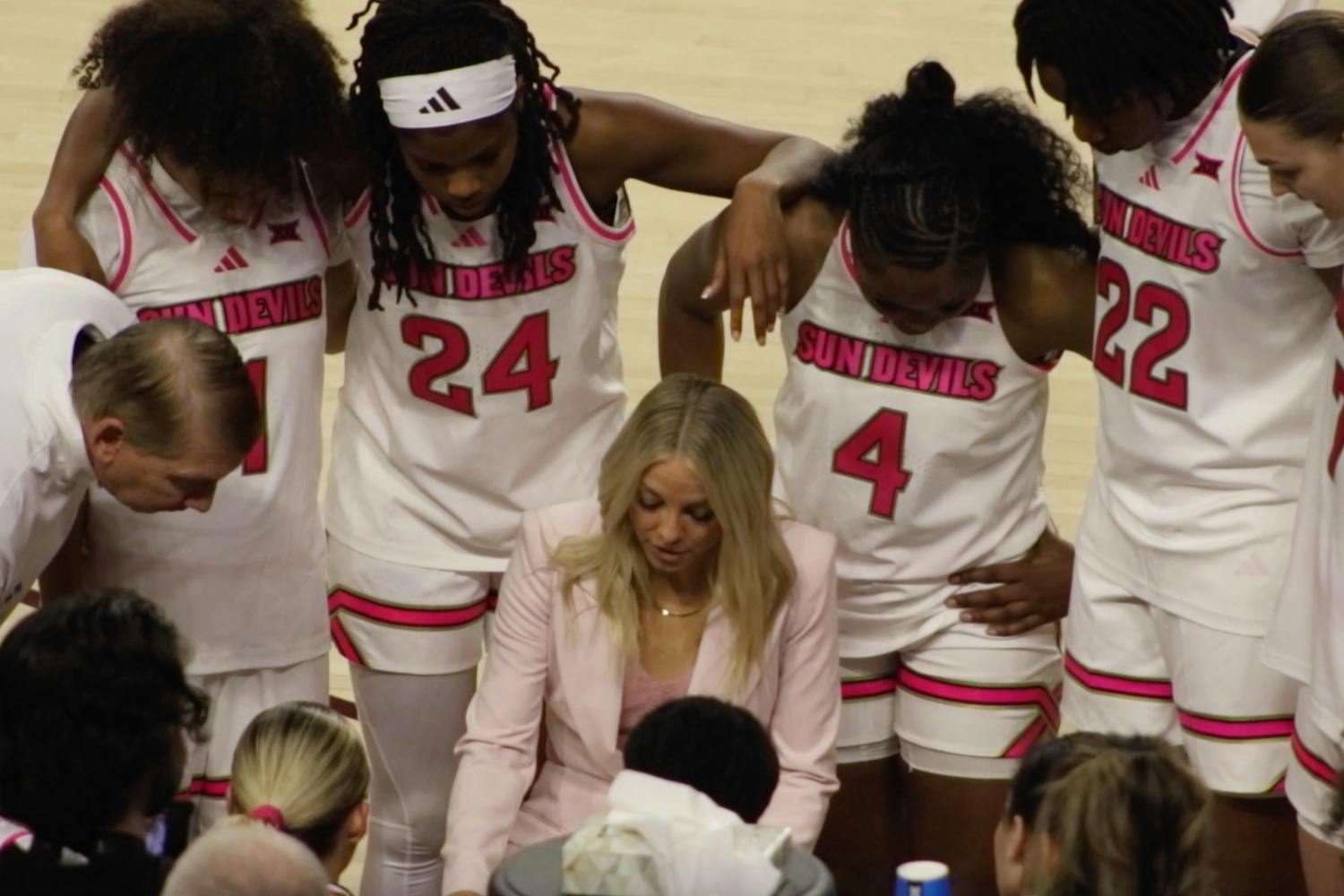The U.S. has gotten a bad rap in the past couple of years.
The country’s position among the world’s most obese has been duly noted, but with a very health conscious society, America has made great strides in altering that perspective.
For athletes around the world, America represents a great opportunity as one of the most sports driven societies on earth.
ASU, with its diverse student population, nice weather and competitive academics brings a lot to the table when international athletes are considering where to attend college.
The Sun Devil golf brand has always stuck out overseas, and with five of the women’s golf players coming from other countries, it’s hard to see that changing.
Once the players get past the new foods, that is.
Giulia Molinaro, the lone senior on the team, came to ASU from Kenya but was born in Italy.
“When I first came in, living in the dorms, it was very hard because that was the food you had to eat and it’s very different from what we are used to at home,” Molinaro said, “We are all freaked out when we first come in of gaining weight, because of the different food.”
Fortunately for the team they won’t be alone. ASU’s new nutritionist, Beth Gevirtz, is determined to help the players stay as nutritionally balanced as possible. While she has only been in Tempe for a few weeks, she has already made plans to find the best options to fit the ASU student athlete’s lifestyle.
“Those that live in the dorms have more trouble than those that live off-campus,” said Gevirtz. “They should always look for the dining halls or the different restaurants that will provide you a fruit or a vegetable with your meal.”
She jokingly added that French fries aren’t acceptable.
Gevirtz, who was a gymnast at the University of Florida, noted that her time there helped prepare her for overseeing nutrition here at ASU. One practice she teaches is getting players like Molinaro to help out the incoming freshmen.
“I have asked upperclassmen, ‘Hey, can you help this freshman? When you go to the grocery store can you bring them along?’” Gevirtz said.
True freshman Noemi Jimenez came to ASU from Spain not knowing what to expect. Literally.
Compared to other golfers who have played tournaments here, Jimenez had never set foot on American soil prior to arriving on campus.
“When I came here my first impression is that you always have to eat fast food,” Jimenez said. “You cannot eat well with things like soup or meat. You have to eat burgers or fries and if you don’t eat that, you have to eat salad.”
Three players came to ASU last January and had to deal with the same difficulties Jimenez did. Laura Blanco, Justine Lee, and Daniela Ordonez all agreed during the spring of 2010 that the food was the hardest thing to get used to since coming to ASU from Colombia, Australia and Colombia respectively.
This year all three have chosen to live off-campus, which they have said helps with their nutrition.
“I want to stay healthy and I like to eat healthy too,” Lee said. “Yeah there are options on campus where you can eat healthy but it’s not a wide variety. It’s just salad.
“Now we go to Safeway, buy groceries and just cook at home.”
Ordonez agreed, saying that if she went to the cafeteria trying to find something healthy and the meat was not as good, she just had to deal with it.
While American colleges, particularly ASU, will continue to be honorable choices for international athletes, the culture shock and difficulty of maintaining nutritional balance will always make the transition harder.
Luckily for the athletes, there are people like Gevirtz around to help them out.
Reach the reporter at jjmcklev@asu.edu
Click here to subscribe to the daily State Press newsletter.





